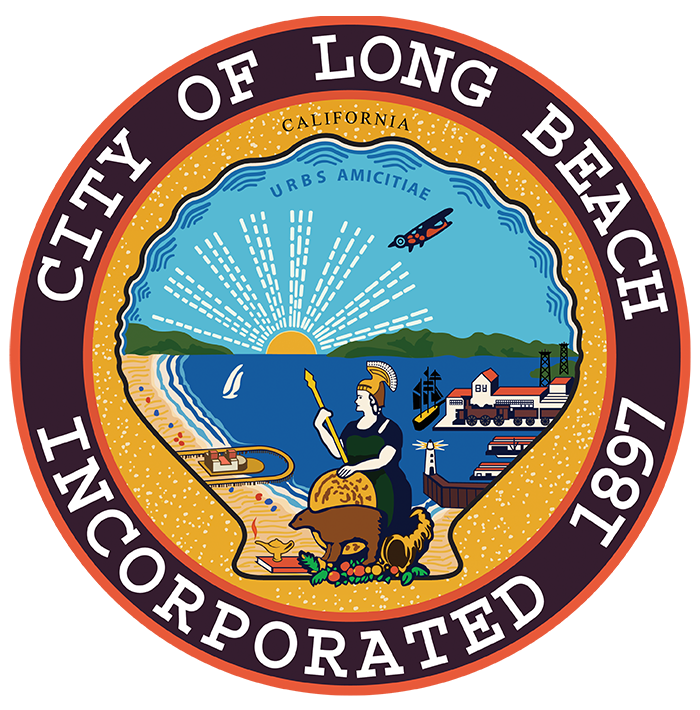Robert E. Fronke
Long Beach City Auditor 1976 – 1992

“…attesting to balance sheets and operations statements is an important function but not the whole ball game.” Robert E. Fronke in Long Beach Independent, July 1979
Robert (Bob) E. Fronke became City Auditor in 1976 to complete the term of retiring City Auditor Murray T. Courson. Usually, the City Auditor is elected; however, when an unexpected vacancy occurs, the City Council appoints the position. Fronke was a Certified Public Accountant in private practice when he applied, and from a field of six candidates, his appointment was voted unanimously. After serving for Courson’s remaining term, Fronke was elected to four additional four-year terms.
Fronke was a strong defender of the independence of the Office. In 1979 a Charter Revision Advisory Committee recommended a change in City charter language to limit the City Auditor to financial audits and prohibit operational audits unless specifically requested by the City Council. In this contentious dispute, Fronke prevailed by convincing the City Council that the scope of modern auditing includes operations or performance audits. He demonstrated that operational audits, when combined with traditional financial audits, produced cost savings from efficiencies and improved effectiveness. Fronke’s views were supported by former City Auditor Murray T. Courson and in public hearings, Courson advocated for operational audits stating that he and his predecessor, John R. Mansell often conducted expanded audits. The City Council unanimously voted against such a change in the charter, agreeing with Fronke that independent, operational or performance audits improved the efficiency and effectiveness of local government.
Great technological changes occurred during Fronke’s time in office, and the City’s financial and accounting systems became computerized with the installation of the new Financial Management Information System (FAMIS). The City still uses a version of the FAMIS system today, but its original installation created a nightmare of unintended consequences for the Auditor’s Office due to a fast-tracked implementation, errors and delays, untrained personnel, and procedural changes. The new system had so many problems that during one month, checks for the City’s business were handwritten, because they could not be printed.
During this extremely difficult transition from the City’s former ledger system, the Office was unable to obtain accurate information from the Department of Finance for financial reports. It was months before the system was operating smoothly, with errors corrected and accounts verified. Fronke led the Office in overcoming these challenges.
Fronke retired from the City Auditor’s Office in October 1992 to take a faculty position at Pepperdine University School of Business and Management. Upon his retirement, the Long Beach Independent Press-Telegram wrote an editorial entitled, “A City in Debt to Its Auditor.” The article acknowledged his contributions to the City, “As for the past 16 years, even detractors of the office say nothing negative about Fronke as auditor. He rubbed some people the wrong way, but for the right reasons. His suggestions led to consolidation of oil operations, computerized accounting and improved handling of everything from parking tickets to bus fares. When he spoke out, it was with insight, clarity and honesty. When he leaves, it will be with a city in his debt.”
Fronke was a valuable resource to Long Beach through his many community activities, and the City benefited from his service after his retirement. He was generous with his knowledge of City government and served on a committee to study Charter reform. He was past President of Long Beach Rotary and was on the Board of Trustees of American Gold Star Manor in Long Beach.
In Robert E. Fronke’s own words…
Understanding his responsibilities to the citizens of Long Beach:
“As city auditor I have attempted to monitor the city’s activities to insure the citizens of Long Beach are receiving the best in financial management and fiscal responsibility. As our problems grow, it is my belief the role of the auditor goes beyond that of just financial auditing and control. It must also include positive recommendations and suggestions for improving efficiency and making more effective use of taxpayers’ money in all city operations.” Long Beach Independent Press-Telegram, December 1977
Communicating the importance of performance audits:
“It’s clear from what is happening in the federal, state and other local governments, the role of the auditor is expanding. There is pressure from taxpayers to obtain more and better information about the operation of their government.” Long Beach Independent Press-Telegram, July 1979
Explaining the City’s budget process:
City Auditor Robert Fronke wrote Can You Budge City’s Budget?, a 1983 Long Beach Independent Press-Telegram article explaining the budget process and encouraging citizens to become involved in the process.




